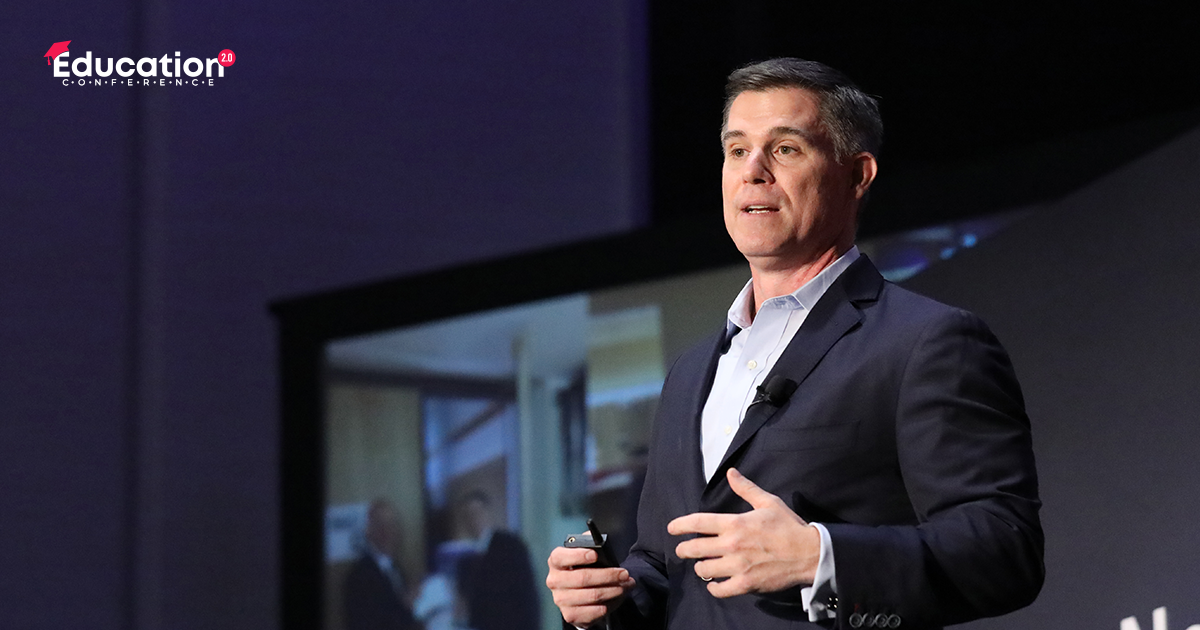Emotional intelligence (EI) is rapidly transforming the educational landscape, moving beyond traditional academic assessments to encompass a wider array of student abilities. This shift towards understanding and nurturing self-awareness, empathy, and social skills is evidenced by its anticipated discussion at the Education 2.0 Conference, an education summit scheduled in Dubai in 2024. Such focus on EI is backed by research demonstrating its direct correlation with enhanced academic performance and student engagement.
This blog aims to shed light on EI's essential role in education, offering educators, leaders, and experts forward-thinking strategies for integrating these critical skills. As we look ahead, readers will gain insights into how EI is expected to redefine educational success while more comprehensively preparing students for life's challenges and opportunities.
How Emotional Intelligence Grows In School Programs?
The gradual integration of emotional intelligence and social-emotional learning (SEL) programs into mainstream educational frameworks reflects a growing recognition of their importance. Moving towards a comprehensive method for enhancing student growth aims to equip learners with a diverse set of skills, from cognitive abilities to emotional competencies and social skills.
Policymakers, educational associations, and school administrators have played a pivotal role in prioritizing the integration of emotional intelligence within educational policies and school-wide initiatives. As interest in EI-based programs increases, it's vital to keep these curricula updated and attuned to the changing requirements of students and the wider educational environment. Anticipating the 2024 Dubai education events, there is an opportunity to further explore and discuss the impact and implementation strategies of emotional intelligence in education.
How To Integrate Emotional Intelligence Into Education?
Embedding social-emotional learning (SEL) activities across academic subjects is a powerful strategy for cultivating emotional intelligence in students. Teachers can integrate activities like role-playing, writing in journals, and group projects to help students practice and utilize their emotional abilities in real-life situations.
Establishing an emotionally aware school environment is another key component. Schools can support EI development through peer mentoring, mindfulness practices, and EI workshops by creating a culture that values empathy, emotional understanding, and healthy communication.
Thorough professional development for educators and school administrators is crucial, providing them with the expertise and competencies needed to successfully demonstrate and cultivate emotional intelligence among students. Innovative teaching methods that blend cognitive and emotional learning, such as experiential activities and project-based learning, can further enhance the integration of EI into the educational setting.
This multi-faceted approach empowers students to develop the social-emotional competencies needed for lifelong success, both academically and in their personal lives. As education experts gather at the upcoming summit in 2024, the transformative potential of emotional intelligence will undoubtedly be a central focus.
Collaboration And Multidisciplinary Approaches
Uniting educators, school psychologists, and emotional intelligence experts is key for crafting effective social-emotional learning (SEL) programs. These collaborations allow for a rich blend of insights and expertise, shaping programs that meet diverse student needs. The integration of advanced technologies, like AI for emotional recognition and virtual reality for immersive learning experiences, adds a personalized touch to EI education, making learning more impactful for each student.
Involving parents and the community enhances the support network for students, extending EI development beyond school walls through workshops and resources. Additionally, educators and leaders benefit from engaging with professional networks and attending conferences, such as the anticipated Education 2.0 Conference. This participation promotes the exchange of ideas and updates on EI education advancements, ensuring that the educational community stays at the forefront of implementing effective, multidisciplinary approaches to emotional intelligence learning.
Measuring And Assessing Emotional Intelligence
As the integration of emotional intelligence (EI) in education continues to expand, the creation of strong assessment frameworks is essential. Crafting valid and reliable instruments to evaluate EI competencies and monitor progress is key for informed decision-making and enhancing educational strategies.
Through the analysis of assessment data centered on EI, educators can pinpoint improvement areas, customize support for each learner, and refine their programs effectively. Championing evaluation systems that treat EI and social-emotional learning as fundamental elements ensures a comprehensive assessment of student achievements.
Technological advancements enhance the assessment process by offering students immediate, personalized feedback on their EI skills. Digital tools and AI applications provide actionable insights, allowing students to improve their emotional intelligence. Looking ahead, the insights shared at the 2024 Dubai education events will likely contribute to evolving these assessment methodologies, offering new perspectives on measuring and enhancing EI in educational settings.

Engaging Parents And The Broader Community
Strengthening home-school partnerships is essential for promoting emotional intelligence development. By engaging parents as active partners, schools can offer workshops and resources to help families cultivate EI skills at home, ensuring a consistent and cohesive approach to student support.
Collaborating with community organizations, such as mental health providers, youth development programs, and community centers, can further enhance the support network for students' social-emotional well-being. These partnerships can create opportunities for cross-domain alignment, where emotional intelligence development is consistently supported across various aspects of a student's life, including school, home, and extracurricular activities.
Empowering students to become ambassadors of emotional intelligence can also be a powerful strategy. By involving learners in the promotion of EI, schools can encourage them to become leaders and role models within their peer groups and the broader community, cultivating a culture of emotional awareness and interpersonal sensitivity.
Future Of Emotional Intelligence In Education
In summary, the educational field is at a critical juncture where the integration of emotional intelligence (EI) and social-emotional learning (SEL) into our schools could fundamentally alter the landscape of education. As we look toward the future, it's evident that technology, diversity, and mental health awareness will be significant factors in how EI is embraced and implemented. Advocacy for policy changes and systemic reforms will be crucial in making EI a core component of education, emphasizing holistic student development.
Educators and stakeholders in the educational field are advised to closely examine the changing dynamics of education, focusing on the integration of emotional intelligence and social-emotional learning. Participation in education conferences, forums, and symposia in 2024 is crucial for gaining valuable insights and encouraging cooperative efforts toward more understanding and effective educational methods.
It's not just about being present; it's about actively contributing to the development of a future that equally prioritizes the emotional and intellectual growth of students. The journey ahead requires a dedication to creating learning spaces where every student can excel, backed by an educational framework that appreciates the entirety of a student's development.














